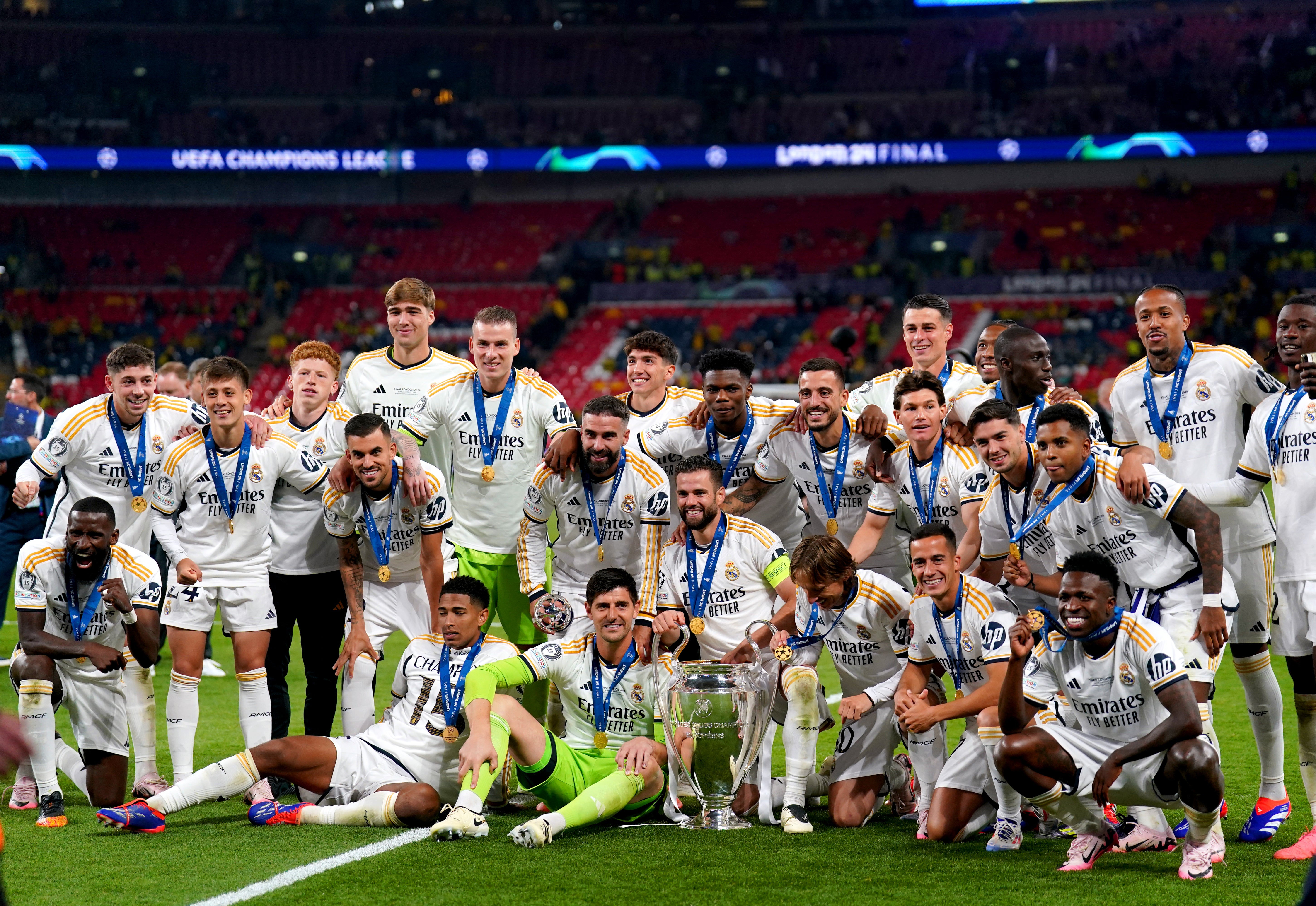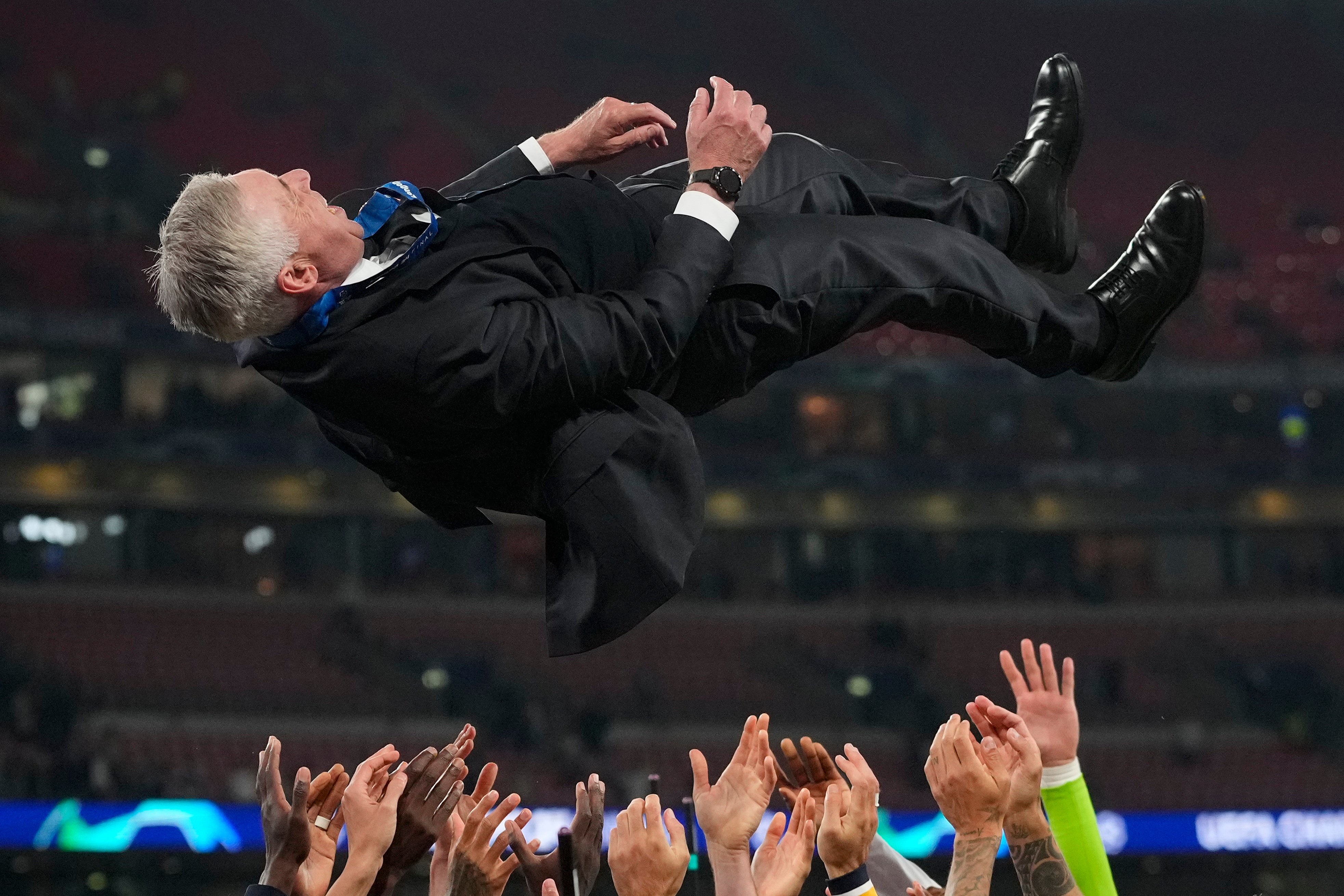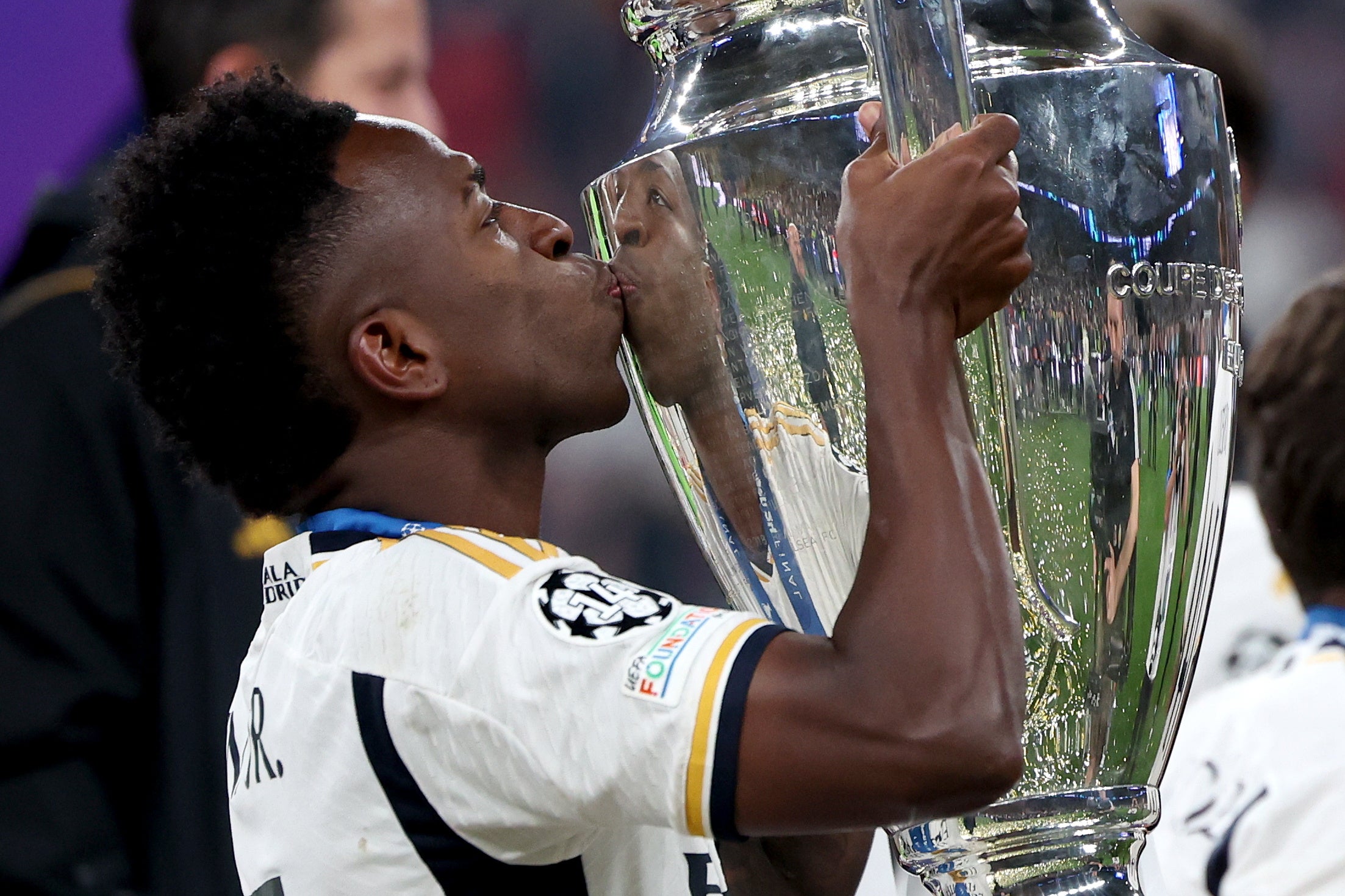Why Real Madrid’s 15th Champions League title is only just the start
Madrid have dominated European football and are now set up for further success despite this season’s tema not being their greatest vintage

Your support helps us to tell the story
From reproductive rights to climate change to Big Tech, The Independent is on the ground when the story is developing. Whether it's investigating the financials of Elon Musk's pro-Trump PAC or producing our latest documentary, 'The A Word', which shines a light on the American women fighting for reproductive rights, we know how important it is to parse out the facts from the messaging.
At such a critical moment in US history, we need reporters on the ground. Your donation allows us to keep sending journalists to speak to both sides of the story.
The Independent is trusted by Americans across the entire political spectrum. And unlike many other quality news outlets, we choose not to lock Americans out of our reporting and analysis with paywalls. We believe quality journalism should be available to everyone, paid for by those who can afford it.
Your support makes all the difference.There was a time when la decima was an obsession; around a decade, fittingly. But the man who earned Real Madrid their long-awaited 10th Champions League also won the 15th and they will start next season as the favourites for a 16th. Carlo Ancelotti’s trio of triumphs have sandwiched a Zinedine Zidane hat-trick and, just as they did between 1956 and 1966, Real have won six of the last 11 finals.
Which, even for a club of their size, of their wealth and with the calibre of players they have had in the last 10 years, is astonishing, It is worth remembering that, when Real’s modern-day golden age began, they had come to seem like Spain’s second force. Barcelona tended to win LaLiga. The dominant philosophy in the global game was Pep Guardiola’s. Barcelona had Lionel Messi, not merely an even greater talent than Cristiano Ronaldo but two years his junior. If anyone seemed likely to win the Champions League six times in 11 seasons, it was Barca.
Instead, the roll of honour from 2014 onwards shows Real with six, Barcelona, Bayern Munich, Chelsea, Liverpool and Manchester City with one apiece. Real have been the great dynasty, with constants like Dani Carvajal and Luka Modric but now showing they can win without Karim Benzema and Gareth Bale, minus Ronaldo and Sergio Ramos but with a much newer generation like Vinicius Junior and Jude Bellingham thinking Champions League titles are Real’s regal right.

But viewed in isolation, there were reasons to think that at least three of the other recent winners could have repeated the feat: Barcelona had Messi, Neymar and Luis Suarez, perhaps the finest forward line then ever assembled, in 2015; Bayern Munich won every Champions League game, the 8-2 against Barcelona famously emphatically, in 2019-20; City pulled off their own treble in 2022-23. None backed up their European glory; while it is too soon to say Guardiola’s City team will not reach such heights again, recent history suggests that only Real are capable of sustaining it.
Barcelona’s decline was starkest. Messi’s last Champions League triumph came at just 28 years old. A fortune was wasted on Philippe Coutinho, Ousmane Dembele, Antoine Griezmann, Miralem Pjanic, Clement Lenglet and crazy contracts. The contrast was supplied by Real: while Eden Hazard and Luka Jovic were expensive missteps, they have otherwise bought brilliantly, identifying future Galacticos at early ages, in Vinicius Junior and Rodrygo, with Endrick potentially the next.

They spent big on the best young talents in Europe, in Bellingham, Eduardo Camavinga and Aurelien Tchouameni, while getting an astonishing bargain in Fede Valverde and picking up smart free transfers in Antonio Rudiger and David Alaba. They have used the allure of Real Madrid adeptly; Kylian Mbappe and Alphonso Davies may prove other cases in point.
Losing the latter, like Alaba, would weaken Bayern. Rudiger was a 2021 winner with Chelsea. The siren call of Real can prove irresistible. And if Bayern in 2020 looked like a team capable of dominating, they instead became an illustration that sometimes a team has a sweet spot, a year or two, like Liverpool’s peak under Jurgen Klopp. Except Real’s has lasted 11 seasons. It has been quixotic. They can trail in any tie and prevail. Put them in a final and they win it.
It makes them the antidote to everyone else, to the teams who find it infuriatingly hard to win the Champions League. City have their host of hard-luck stories, the cruel eliminations that mean Guardiola’s record in Manchester, for all their English titles, only stands at one European crown in eight seasons. Paris Saint-Germain have their collection of hubristic failures. Juventus, one of Real’s final victims, illustrate that, in shooting for the stars, it is instead very possible to shoot yourself in the foot: they regressed after buying Ronaldo from Real.

Liverpool have arguably been the second-best Champions League team during Real’s 21st-century supremacy: only they and Real have reached three finals in those 11 seasons. Yet their last campaign was in the Europa League and Klopp is gone. With Bayern in transition, too, with various of the usual powers stumbling around, their own misfortunes to some extent their fault – look at Barcelona, Juve, Chelsea and Manchester United – and even with the emergence of Inter, Arsenal and Bayer Leverkusen, Real could face less high-grade opposition than in some previous years; even if, Real being Real, they may trail for much of a knockout tie before staging an act of escapology.
Even as Toni Kroos goes, Modric stays for another year. There may be a vacancy soon for another elite playmaker. Otherwise, Real are enviably well positioned for the future.
The present has scarcely been terrific. Such are the standards of the club that this may not feel one of their greatest vintages. Yet they have only lost two games this season, only been beaten by one team, in their neighbours Atletico. They did not lose at all in the Champions League. It is another reason why they were its eventual winners. Its ultimate winners, too.
Join our commenting forum
Join thought-provoking conversations, follow other Independent readers and see their replies
Comments